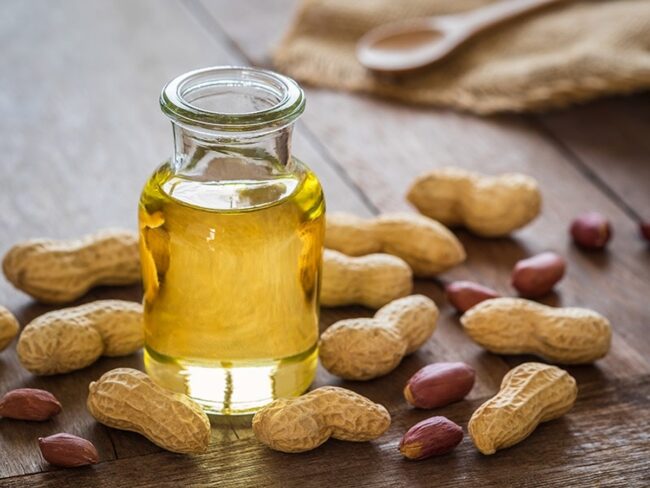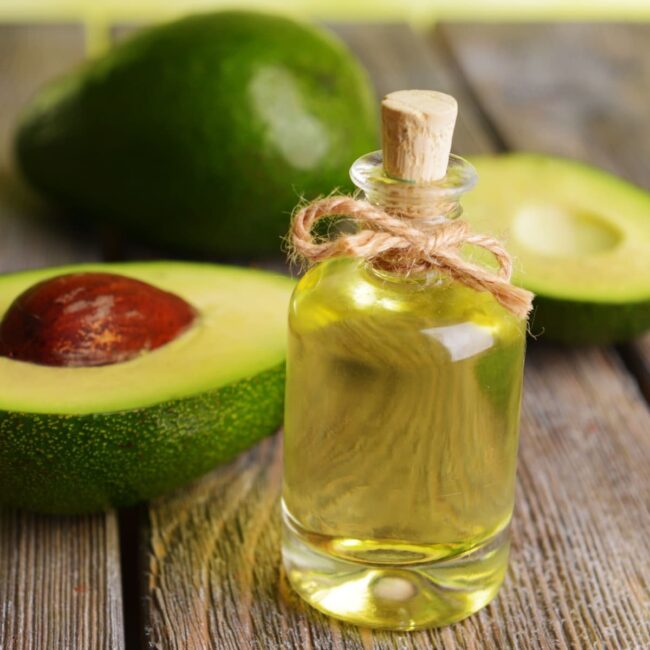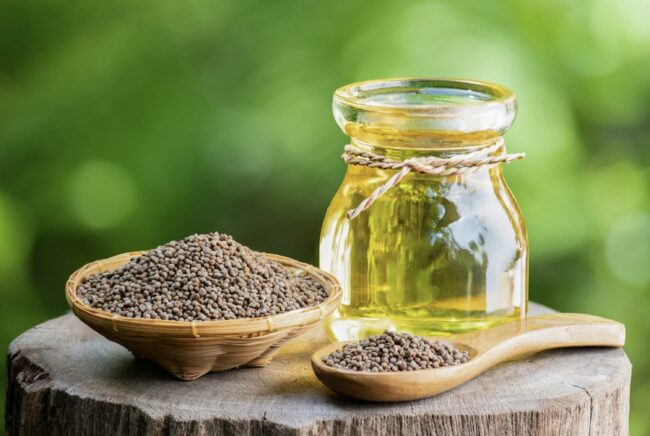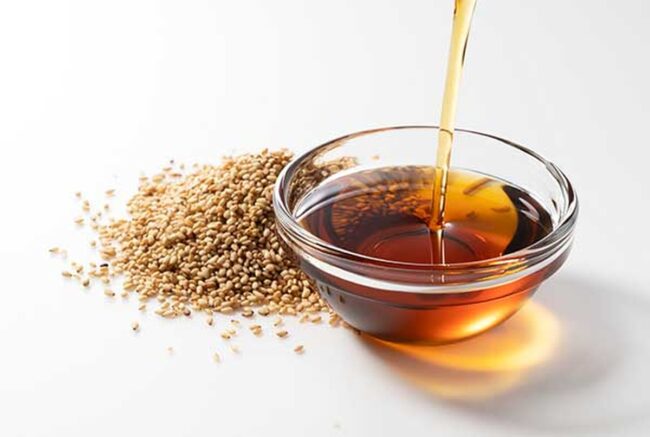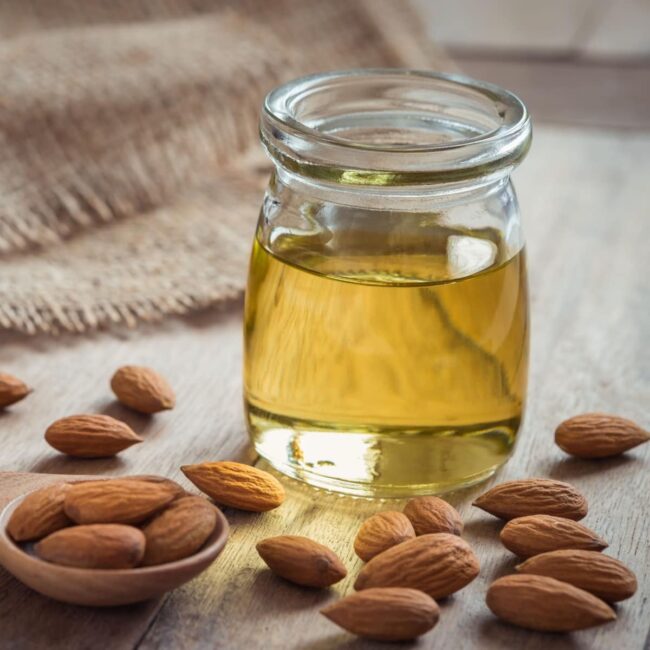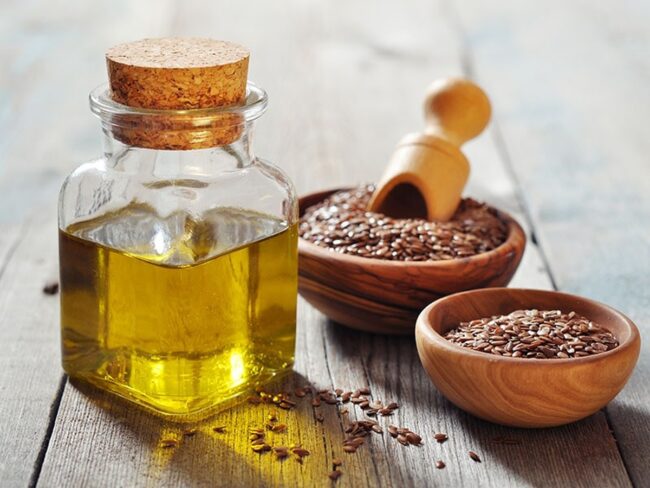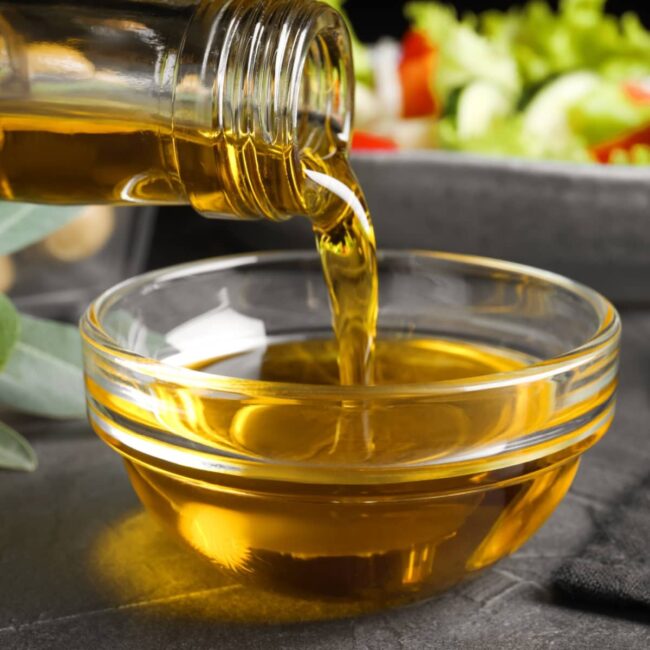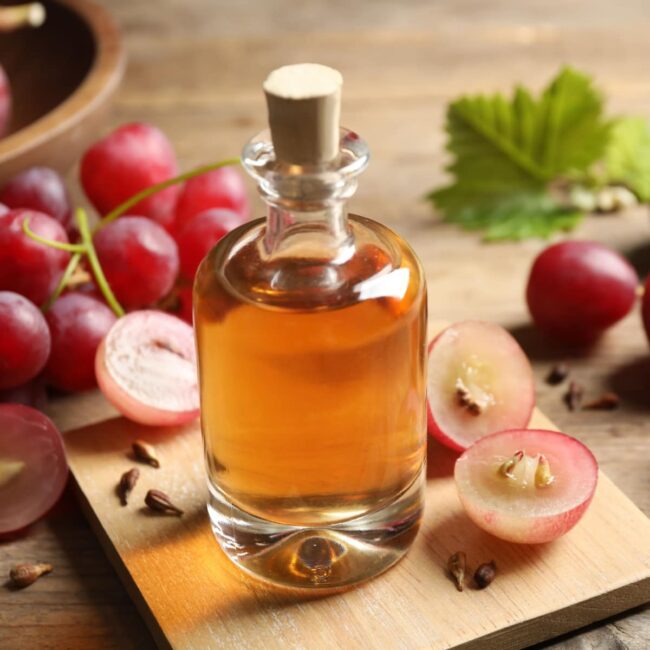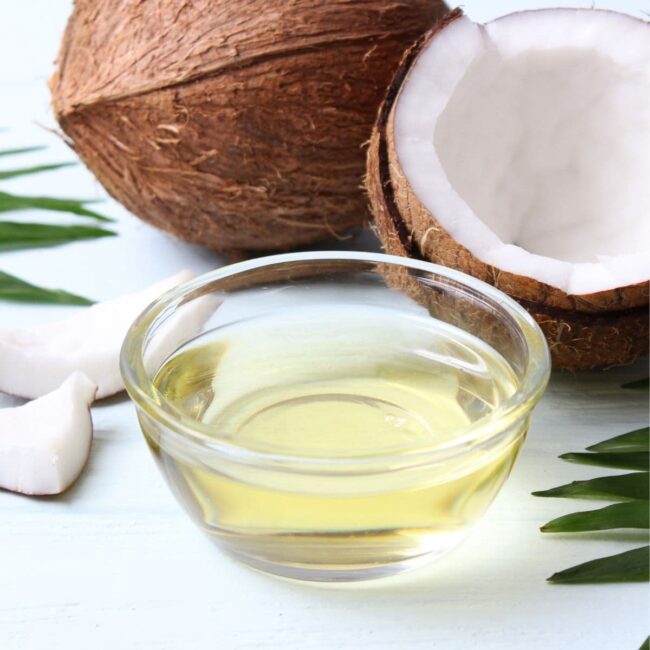17 Rich Sesame Oil Substitutes for Asian-Inspired Dishes
Sesame oil substitutes provide the same depth of flavor, from rich and nutty to light and aromatic. Some alternatives match its toasty intensity, while others bring a milder, more delicate note.
The best choice depends on whether it's used for cooking, finishing, or dressing dishes. A few options enhance stir-fries, while others blend well into sauces and marinades.
Some substitutes work best in raw applications, preserving their subtle essence. If sesame oil isn’t available, these 17 substitutes will bring the right balance to your dishes:
What to Know About Sesame Oil
Sesame oil, extracted from sesame seeds, adds a delightful nutty essence to countless meals. Two primary types exist: toasted and light sesame oil.
Easy Replacements for Sesame Oil
These swaps bring similar nuttiness and depth when you’re out of sesame oil.
Peanut Oil
Peanut oil serves as a fantastic alternative to sesame oil in various culinary applications.
This versatile oil boasts a high smoke point, making it ideal for frying and sautéing without compromising flavor integrity.
Its mild taste complements dishes seamlessly, allowing other ingredients to shine through while maintaining a similar texture to sesame oil.
Packed with beneficial monounsaturated and polyunsaturated fats, incorporating peanut oil into your cooking not only enhances the dish but also adds nutritional value effortlessly.
Olive Oil
Olive oil serves as an excellent alternative to sesame oil, bringing its own unique character to a variety of dishes. Known for its rich flavor profile and health benefits, it enhances salad dressings and low-heat preparations beautifully.
With a higher concentration of monounsaturated fats, this oil not only adds depth but also promotes heart health. Its Mediterranean roots can transform ordinary meals into something special while still being approachable in everyday cooking.
You might find yourself reaching for olive oil more often than you expected when seeking that extra layer of taste in your culinary creations.
Avocado Oil
Avocado oil serves as an excellent alternative to sesame oil, renowned for its versatility in the kitchen. With a high smoke point, it easily adapts to various cooking methods while maintaining a mild flavor that complements many dishes without overpowering them.
Packed with healthy monounsaturated and polyunsaturated fats, avocado oil enhances your meals nutritionally. This makes it not only suitable for sautéing but also perfect for dressings and marinades.
You can confidently reach for this option when aiming to maintain health without sacrificing taste or quality in your culinary creations.
Canola Oil
Canola oil stands out as an excellent alternative to sesame oil due to its mild flavor and impressive smoke point.
This versatile cooking oil not only fits various culinary applications but also contributes beneficial omega-3 fatty acids, promoting heart health.
Its balance of polyunsaturated and monounsaturated fats makes it a smart choice for healthier cooking options without compromising taste.
Incorporating canola oil into your recipes ensures you maintain the right texture while enjoying a budget-friendly ingredient that works in many dishes.
Perilla Oil
Perilla oil serves as a robust alternative to sesame oil, offering a unique nutty flavor that enhances various dishes. Extracted from the seeds of the perilla plant, this oil boasts an impressive smoke point, making it ideal for high-heat cooking methods like stir-frying and sautéing.
Rich in omega-3 fatty acids, it contributes health benefits while adding depth to your meals. While its intense taste can elevate certain recipes, consider using it judiciously to avoid overpowering subtler flavors in your culinary creations.
This ingredient can transform everyday dishes into memorable experiences with just a splash or two.
Fish Oil
Fish oil serves as a potent alternative to sesame oil, primarily recognized for its impressive omega-3 fatty acid content. Often regarded more as a supplement than a cooking ingredient, incorporating fish oil into your meals can enhance their nutritional profile without overwhelming the dish's flavor.
You might find it effective to blend it with another cooking oil or integrate it into smoothies and protein shakes for an extra health boost. This approach allows you to benefit from the rich nutrients while still enjoying diverse culinary experiences in your diet.
Adapting this healthy option can easily support your overall wellness goals without compromising on taste or satisfaction.
Sunflower Oil
Sunflower oil serves as a fantastic alternative to sesame oil, offering a clean flavor profile and impressive smoke point. Its versatility shines in various cooking techniques like frying and sautéing.
Packed with polyunsaturated fats, this oil contributes positively to heart health while enhancing your dishes without overpowering them. When you need an effective substitute that supports healthy cooking practices, sunflower oil stands out as an excellent choice for any kitchen endeavor.
You’ll find it seamlessly integrates into recipes calling for sesame oil while ensuring delightful results.
Butter
Butter serves as a versatile alternative to sesame oil, particularly in dishes that benefit from its creamy richness.
With its unique flavor profile, butter can enhance the taste of sautéed vegetables or stir-fried recipes where you want an added depth.
Although it has a lower smoke point than oils and contains saturated fats, using butter thoughtfully can bring warmth and comfort to your cooking.
For those looking for familiar flavors without relying on traditional oils, this substitute offers both culinary creativity and indulgence in meals crafted at home.
Almond oil
Almond oil serves as an excellent alternative to sesame oil, bringing a rich nutty flavor that enhances various dishes. This versatile oil works wonderfully in salad dressings and as a finishing touch on cooked meals, adding depth without overpowering other ingredients.
Its lower smoke point makes it less suitable for high-heat cooking but perfect for drizzling or light sautéing. Rich in monounsaturated fats, almond oil supports heart health while providing essential nutrients.
Consider using this delightful option when you're looking to replace sesame oil in your favorite recipes; its unique taste offers great versatility.
Flaxseed Oil
Flaxseed oil serves as a notable alternative to sesame oil, renowned for its abundance of omega-3 fatty acids.
This particular oil shines in cold dishes such as salad dressings and dips due to its low smoke point.
While it offers nutritional benefits, the strong taste may not complement every dish seamlessly.
You can experiment with flaxseed oil in various recipes but expect some flavor variation that could enhance or alter the final outcome depending on your palate preferences.
Vegetable Oil
Vegetable oil serves as a versatile alternative to sesame oil, known for its neutral flavor and high smoke point, making it ideal for frying and sautéing.
This cooking staple is derived from various seeds or nuts, offering a mild taste that won't overpower your dishes.
With a blend of polyunsaturated and monounsaturated fats, it provides an easy way to keep meals healthy without sacrificing texture or quality.
Whether you're whipping up stir-fries or salad dressings, you can rely on vegetable oil's adaptability in the kitchen while maintaining balanced flavors throughout your meal preparations.
Grapeseed Oil
Grapeseed oil serves as an excellent alternative to sesame oil, offering a delicate flavor that complements various dishes. Its versatility shines in dressings and marinades, enhancing your culinary creations without overpowering them.
With a high smoke point, it is suitable for low-heat cooking methods while retaining its nutritional benefits. Rich in polyunsaturated fats, this oil adds healthy qualities to your meals and can easily become a staple in your kitchen.
Using grapeseed oil allows you to experiment with flavors while maintaining balance in health-conscious recipes.
Hemp Seed Oil
Hemp seed oil serves as an excellent alternative to sesame oil, bringing a rich nutty taste that enhances various dishes. This versatile oil is renowned for its high content of omega-3 fatty acids, making it a healthy choice for your meals.
Ideal for cold applications, hemp seed oil shines in salad dressings or as a finishing touch on roasted vegetables. Its distinct flavor profile not only complements but also elevates the overall dish experience.
When you’re looking to switch things up in your kitchen, this unique option can transform ordinary recipes into something special while adding nutritional benefits.
Walnut Oil
Walnut oil stands out as an excellent alternative to sesame oil, providing a rich, nutty flavor that enhances various dishes.
With its low smoke point, it shines in salad dressings or drizzled over finished meals rather than used for high-heat cooking.
Packed with polyunsaturated fats and omega-3 fatty acids, this oil supports heart health while adding depth to your culinary creations.
Whether you're tossing together a fresh salad or elevating roasted vegetables, walnut oil can bring a delightful twist to your recipes without compromising on nutrition.
Coconut Oil
Coconut oil serves as a popular alternative to sesame oil, characterized by its rich taste and creamy texture. This saturated fat enhances various dishes with a subtle sweetness that complements many recipes beautifully.
Although it's well-suited for baking or sautéing at lower temperatures, the distinct flavor may not align with every culinary creation requiring a more neutral profile. Keep in mind that coconut oil has a relatively low smoke point, so it’s best used in moderate heat applications rather than high-temperature cooking methods.
If you're seeking versatility while exploring different flavors, consider incorporating this unique ingredient into your meals where appropriate.
Safflower Oil
Safflower oil serves as an excellent alternative to sesame oil, recognized for its neutral flavor and impressive smoke point. Ideal for a variety of cooking methods such as frying, sautéing, and baking, this oil adds versatility to your kitchen.
Packed with monounsaturated fats, it not only enhances dishes but also supports heart health. If you're looking for a reliable substitute that won’t overpower your recipes while still providing quality results in the kitchen, safflower oil is worth considering.
Its light taste ensures it blends seamlessly into any dish you prepare without stealing the spotlight from other flavors.
Pumpkin Seed Oil
Pumpkin seed oil serves as an intriguing alternative to sesame oil, offering a unique nutty flavor profile that can enhance various dishes. Its rich content of polyunsaturated fats adds nutritional benefits, making it a great choice for those seeking healthier oils.
While its low smoke point limits its use in high-heat cooking methods, this oil shines when used in salad dressings or as a finishing touch on soups and roasted vegetables. Drizzling pumpkin seed oil over your favorite meals brings both taste and healthfulness to the table, adding depth without overpowering other ingredients.
This versatile option allows you to explore new culinary possibilities while keeping nutrition at the forefront of your cooking choices.
The Use of Sesame Oil in Cooking
Discover how sesame oil is utilized in various cuisines to add flavor.
Cooking with Asian Ingredients
Sesame oil holds a vital place in Asian cooking, known for its unique flavor that enhances various dishes.
This aromatic oil is not just an ingredient but a secret to elevating the taste of meals like stir-fries and salads.
It works wonderfully in sauces and dressings too, making everything more appealing. Here are some ways to use sesame oil effectively:
Key Flavors in Korean Dishes
Sesame oil stands out as a key ingredient in Korean cooking, enhancing both flavor and texture. Here are some interesting uses of sesame oil that truly elevate dishes:
When you find yourself without sesame oil, alternatives exist. Consider peanut or sunflower oils for their similar consistency.
You could also create your own version by toasting sesame seeds lightly then blending them into neutral oils like grapeseed or canola.
This method captures the essence while offering familiar flavors in your recipes.
Safety Tips for Using Oil Substitutes
Learn about precautions to take when replacing oils in your cooking.
Recognizing Allergy Symptoms
Opting for an alternative to sesame oil requires careful consideration, particularly concerning potential allergic reactions. Many people may experience allergies or asthma triggered by certain oils, so understanding your sensitivities is crucial when preparing a meal.
Selecting cooking oils that are safe and well-tolerated can help ensure everyone enjoys the dish without worry about adverse effects. Look for substitutes that fit within your dietary preferences while maintaining flavor integrity in your recipes.
Making informed choices will contribute to a safer and more enjoyable dining experience for you and those sharing the table with you.
How It’s Cooked
Sesame oil substitutes are essential for achieving the desired flavor and cooking results in various dishes. Choosing the right oil significantly depends on your intended cooking method, as different oils offer distinct smoke points that affect their performance.
For frying or sautéing, high-smoke-point options like peanut or avocado oil work best, delivering a reliable base without compromising taste. When crafting dressings or marinades, consider using flavorful alternatives such as olive or walnut oil to enhance your dish’s character while maintaining its integrity.
Adjusting temperature and timing is vital to avoid burning; experimenting with these substitutes can lead you to exciting new flavors and textures in your meals.


